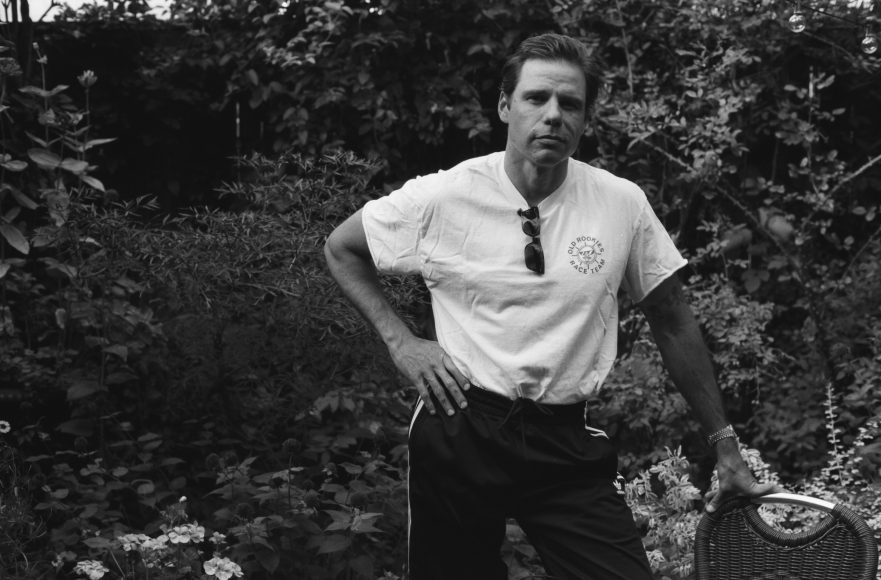
Bahamas
Biography
My Second Last Album
Afie Jurvanen does not spend too much time in cities these days. For nearly two decades, Jurvanen was a fixture of the Toronto scene, both as a valued multi-instrumentalist and producer for friends like Feist, The Weather Station, and Kathleen Edwards and as the architect of one of his country’s most celebrated artists, Bahamas. Jurvanen came of age across Bahamas’ first six albums, the restlessness of jumpy early hits like Pink Strat and Barchords slowly shifting into the generous domesticity of 2023’s Bootcut. But Jurvanen has long been drawn to open spaces, to a quieter life. In 2009, the year of his aforementioned debut, he began visiting Nova Scotia, the Atlantic Ocean. Over the next decade, his trips became more consistent, then more frequent, and then longer, until, in 2019, Jurvanen and his family of four finally made the move—nearly 2,000 kilometers northeast, to Nova Scotia. They live a lifestyle, Jurvanen half-jokes, that is “close to Mennonite.” The kids are homeschooled. No one has an iPad. Text messages can feel like miracles.
But in 2022, Jurvanen went back to a city—namely, Music City, or Nashville, Tenn. During five days at the Sound Emporium, he worked with some of America’s true country greats, aces like Vince Gill and Sam Bush, Russ Pahl and Mickey Raphael. Bootcut, he reminisces, was maybe the easiest record he’s ever made, his songs and visions executed with utter clarity by absolute pros. When Jurvanen came home, though, he still had a few tunes and plenty of energy. Could he make more music, he wondered, outside
of a city?
Despite his extended résumé, Jurvanen has never been much of a tech guy or studio hound, never one for making his own records. In 2021, however, producer and multiinstrumentalist Joshua Van Tassel had also left Toronto, moving back to Nova Scotia and building a little studio, called DreamDate, in a backyard shed there. It was just small enough to skirt inspections, just big enough to house everything. Jurvanen had once rented Van Tassel’s space back in Toronto to listen to his Earthtones album on someone else’s speakers, to decide if it was ready for release. He’d been impressed by the place’s minimalism and tidiness, by the studio rarity of everything working. So Jurvanen began driving the 20 minutes from his cottage to Van Tassel’s spot via a winding ocean road, passing his days hanging out with his local friend and recording some songs. There was no real agenda but to work and play. And that’s how two people in a little shed made what may be the most effortlessly magnetic record in the entire Bahamas catalogue, My Second Last Album.
Van Tassel and Jurvanen played every sound on My Second Last Album, from the buzzing acoustics of “Shadows” to the Mellotron ostinato of “Play the Game.” This self- dependence allowed them to do anything they wanted, to follow musical enthusiasms into any space they favored. Jurvanen wrote “The Bridge” via text with Hiss Golden Messenger’s M.C. Taylor, and he and Van Tassel turned it into an infectious country-funk tune, the strutting refrain closing the gap between Little Feat and Canned Heat. “Ready for a New Thing” echoes Joni Mitchell’s famous electric guitar tone, using it as the core of a buoyant little pop song about growing up, about being happy with growing older. “Feels So Good” is a modern soul wonder, its perfect groove framed by bass, piano, and finger-snap drums and built with a brilliant amount of negative space. There is charging indie rock, hazy piano, and pastoral folk-rock. Again, My Second Last Album is anything Van Tassel and Jurvanen wanted it to be.
What’s most striking about these 11 songs, though, may be Jurvanen’s lyrical candor and open sense of play. He often found himself so motivated by what he and Van Tassel had accomplished during the day that he’d go home and write another song by night, the pace giving him permission to put down words without second-guessing himself. “Don’t hold back/share your opinion,” as he belts out as he emerges from the bridge on the funny and real opener, “Sauna.” His opinions here range from government payouts that could feel like pandemic bribes (again, “Sauna”) to the anti-rock star practice of waking up early enough to see the dawn and feel the day take shape (“Ready for a New Thing”). Over the tender piano of “Only Inspiration,” he extols the virtues of living in a house of women and girls, while he chastises Henry Ford’s vitriol and social media’s endemic bile on “Dearborn.” There is a burgeoning strain of self-determination to it all, of finding and accepting new ways to live for oneself and for everyone else, too. As Jurvanen, the son of immigrants, sings during the poignant closer, “We all belong in this country.” In the country, Jurvanen found his own state of being.
For a long time, Jurvanen didn’t know what to do with My Second Last Album. After cutting a legitimate country record in the city where the genre lives, was it a too-weird left turn to put out a loose limbed indie-pop set cut in a shed? He thought about slicing it into singles or splicing it as a bonus onto some sort of future Bahamas compendium, maybe even shelving it altogether. But then he put the record back on after not hearing it for several months and had the simplest and most profound realization possible: He loved these songs, the way they sat together, the story they told about who he was at that moment—a married father content to live in the country alongside the very ocean where he surfs, a musician who often goes to his buddy’s house to casually make some music. It became My Second Last Album, one of Bahamas’ truly indispensable works.